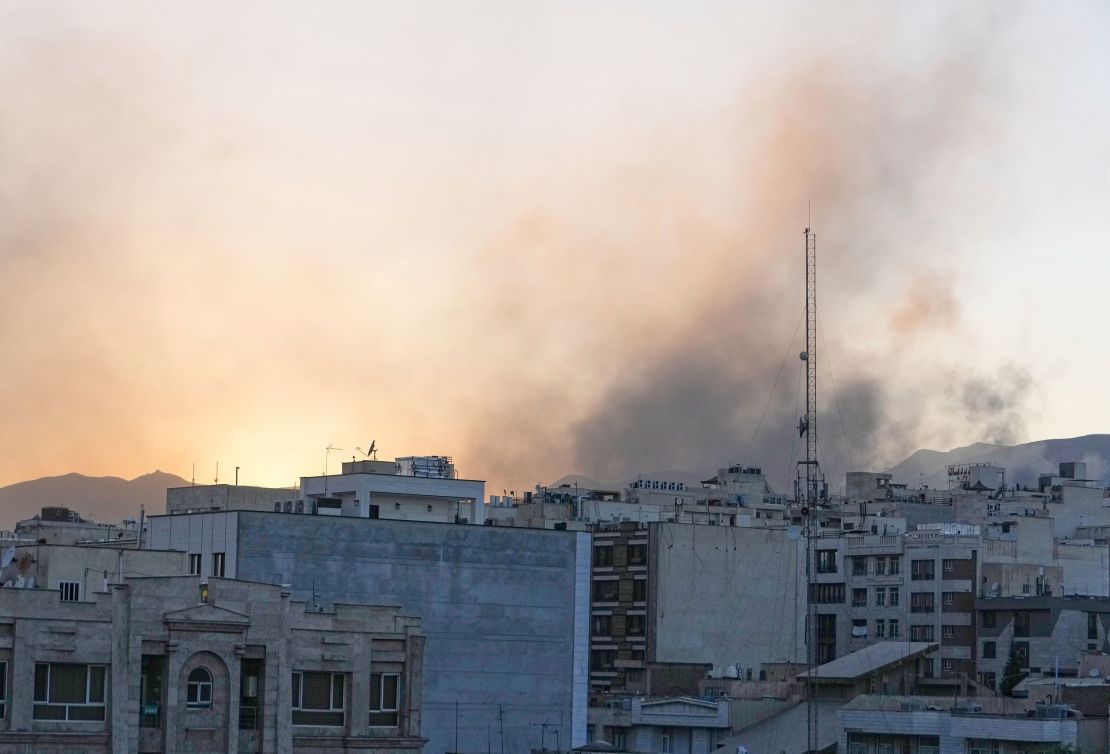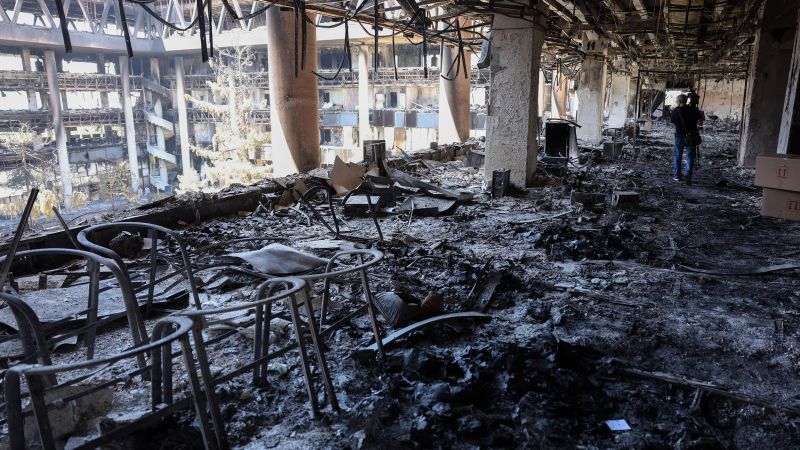CNN
—
After days of tit-for-tat strikes between Israel and Iran, for the civilians caught up in Israel’s bombing campaign, life is filled with uncertainty.
“This is war,” one 58-year-old father of two in the capital, Tehran, told CNN, adding, “no one really understands what that means.”
A week into the conflict, Iranians’ contact with the outside world is difficult, hampered by sporadic internet and phone coverage. Some – typically wealthy activists – have access to Starlink terminals providing independent internet access.
Speaking through voice recordings, messages and occasional calls, all the people interviewed asked CNN not to reveal their full names for fear of retribution from Iran’s authorities.
Life has found a new wartime rhythm, they said, with local shops still open but some accepting payment on credit, the father of two told CNN. Unable to withdraw money from Iran’s Sepah Bank, this credit has become a lifeline.
“We have electricity but gasoline is useless to us because we have nowhere to go outside Tehran,” he said, after long lines of traffic departing the capital were seen in recent days.
Glued to the TV watching an outlawed Iranian broadcaster based in London, he said his family hadn’t left their house in recent days.
”Daily life is filled with constant fear and distrust,” he said.
From Shiraz in southern Iran, a 55-year-old English teacher described a “huge group of people waiting” to withdraw cash at a bank branch in the city center.
“The workers were completely overwhelmed and said they just cannot process all these requests for cash. I wouldn’t say it was chaotic, but I do feel there is an underlying feeling of panic,” he said.
Destruction and despair
“It feels like a missile is following me. I go to Karaj and they bomb there. I come to Tehran and they bomb here,” a 27-year-old conscript soldier told CNN. Posted in Tehran, he was able to visit family in Karaj at the weekend, but in the capital is prohibited by military rules from using his phone or other devices. “We can’t even check the news.”
A hairdresser from Shiraz lamented the destruction being inflicted: “I don’t even know what to say. You watch the videos, the photos. People are being killed, our country is being looted, falling apart like this.”

“Israel and the US don’t care about the Iranian people,” she said. “You want to hit the real target, but it’s surrounded by ordinary people. They’re destroying the country.”
“Rebuilding all this may take decades, if not longer, and in the end it’s we the people who will have to bear the cost,” a 22-year-old janitor of an apartment building in Tehran told CNN.
More than 200 people have been killed in Iran, according to Tehran, with Israel’s strikes taking out much of the key leadership in the country’s military and nuclear program. But Iran has accused Israel of also targeting its energy and digital infrastructure.
“We are paying the price for a dictatorship and its arrogance,” shared a nurse from Mashad, northeast Iran, whose father was a decorated war veteran. “But now that all its forces (in the region) have been destroyed, it seems that its own turn has come,” she added.
Watching the attacks on a deeply unpopular regime, some Iranians confessed to welcoming the strikes, even as civilians were caught up in the bombings.
“I want to say what I truly feel,” a student from Shiraz told CNN, “I don’t know what I’ll be judged for, what I’ll be accused of.
“Still, I’ll say it, I’m genuinely happy. Really, deeply happy!” she added. “I believe it’s worth it, for the sake of future generations.”
But a week into the fighting, even as diplomatic channels for peace start to coalesce, there’s still no sign of an end to the bombings. Uncertainty has only been fueled by US President Donald Trump teasing the possibility of US aircraft joining the bombing campaign.
Iran’s Supreme Leader Ayatollah Khamenei has slammed Trump’s call for surrender, warning that America’s involvement in Israel’s military campaign would “100% be at their loss.”
Other Iranians share his defiance.
“The mood in Iran is starting to morph into an environment of nationalism,” according to a 69-year-old Iranian-American woman visiting Tehran. “I saw a lot of cars waving the Islamic Republic flag from their windows as we drove out of town.”
“I lost a son during the Iran-Iraq War and will be happy to fight America and the Zionists again,” a 78-year-old mosque caretaker from Isfahan told CNN, “Those who love martyrdom cannot be defeated.”
The prospects of peace look slim, one engineering student from Mashad told CNN.
“Now that Trump has come this far, he will see it through to the end. They don’t let a wounded bear go free,” she said.

